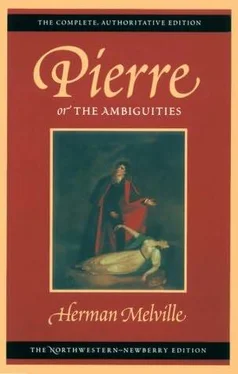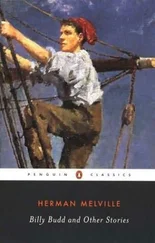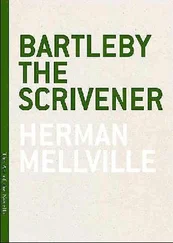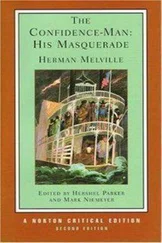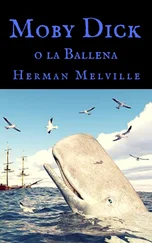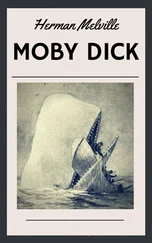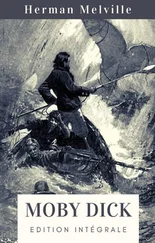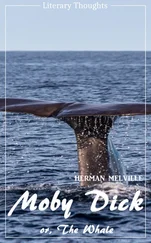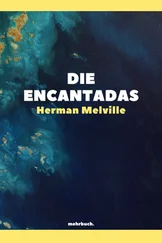Herman Melville - Pierre, Or the Ambiguities
Здесь есть возможность читать онлайн «Herman Melville - Pierre, Or the Ambiguities» весь текст электронной книги совершенно бесплатно (целиком полную версию без сокращений). В некоторых случаях можно слушать аудио, скачать через торрент в формате fb2 и присутствует краткое содержание. Жанр: Классическая проза, на английском языке. Описание произведения, (предисловие) а так же отзывы посетителей доступны на портале библиотеки ЛибКат.
- Название:Pierre, Or the Ambiguities
- Автор:
- Жанр:
- Год:неизвестен
- ISBN:нет данных
- Рейтинг книги:4 / 5. Голосов: 1
-
Избранное:Добавить в избранное
- Отзывы:
-
Ваша оценка:
- 80
- 1
- 2
- 3
- 4
- 5
Pierre, Or the Ambiguities: краткое содержание, описание и аннотация
Предлагаем к чтению аннотацию, описание, краткое содержание или предисловие (зависит от того, что написал сам автор книги «Pierre, Or the Ambiguities»). Если вы не нашли необходимую информацию о книге — напишите в комментариях, мы постараемся отыскать её.
Pierre, Or the Ambiguities — читать онлайн бесплатно полную книгу (весь текст) целиком
Ниже представлен текст книги, разбитый по страницам. Система сохранения места последней прочитанной страницы, позволяет с удобством читать онлайн бесплатно книгу «Pierre, Or the Ambiguities», без необходимости каждый раз заново искать на чём Вы остановились. Поставьте закладку, и сможете в любой момент перейти на страницу, на которой закончили чтение.
Интервал:
Закладка:
In this matter we will-not superciliously, but in fair spirit — compare pedigrees with England, and strange as it may seem at the first blush, not without some claim to equality. I dare say, that in this thing the Peerage Book is a good statistical standard whereby to judge her; since the compilers of that work can not be entirely insensible on whose patronage they most rely; and the common intelligence of our own people shall suffice to judge us. But the magnificence of names must not mislead us as to the humility of things. For as the breath in all our lungs is hereditary, and my present breath at this moment, is further descended than the body of the present High Priest of the Jews, so far as he can assuredly trace it; so mere names, which are also but air, do likewise revel in this endless descendedness. But if Richmond, and St. Albans, and Graft on, and Portland, and Buccleuch, be names almost old as England herself, the present Dukes of those names stop in their own genuine pedigrees at Charles n., and there find no very fine fountain; since what we would deem the least glorious parentage under the sun, is precisely the parentage of a Buccleuch, for example; whose ancestress could not well avoid being a mother, it is true, but had accidentally omitted the preliminary rite. Yet a king was the sire. Then only so much the worse; for if it be small insult to be struck by a pauper, but mortal offense to receive a blow from a gentleman, then of all things, the bye-blows of kings must be signally unflattering. In England the Peerage is kept alive by incessant restorations and creations. One man, George in., manufactured five hundred and twenty-two peers. An earldom, in abeyance for five centuries, has suddenly been assumed by some commoner, to whom it had not so much descended, as through the art of the lawyers been made flexibly to bend in that direction. For not Thames is so sinuous in his natural course, not the Bridgewater Canal more artificially conducted, than blood in the veins of that winding or manufactured nobility. Perishable as stubble, and fungous as the fungi, those grafted families successively live and die on the eternal soil of a name. In England this day, twenty-five hundred peerages are extinct; but the names survive. So that the empty air of a name is more endurable than a man, or than dynasties of men; the air fills man's lungs and puts life into a man, but man fills not the air, nor puts life into that.
All honor to the names then, and all courtesy to the men; but if St. Albans tell me he is all-honorable and all-eternal, I must still politely refer him to Nell Gwynne.
Beyond Charles n. very few indeed-hardly worthy of note — are the present titled English families which can trace any thing like a direct unvitiated blood-descent from the thief knights of the Norman. Beyond Charles II, their direct genealogies seem vain as though some Jew clothesman, with a tea-canister on his head, turned over the first chapter of St. Matthew to make out his unmingled participation in the blood of King Saul, who had long died ere the career of the Caesar began.
Now, not preliminarily to enlarge upon the fact that, while in England an immense mass of state-masonry is brought to bear as a buttress in upholding the hereditary existence of certain houses, while with us nothing of that kind can possibly be admitted; and to omit all mention of the hundreds of unobtrusive families in New England who, nevertheless, might easily trace their uninterrupted English lineage to a time before Charles the Blade: not to speak of the old and oriental-like English planter families of Virginia and the South; the Randolphs for example, one of whose ancestors, in King James' tune, married Pocahontas the Indian Princess, and in whose blood therefore an underived aboriginal royalty was flowing over two hundred years ago; consider those most ancient and magnificent Dutch manors at the North, whose perches are miles-whose meadows overspread adjacent counties-and whose haughty rent-deeds are held by their thousand farmer-tenants, so long as grass grows and water runs; which hints of a surprising eternity for a deed, and seems to make lawyer's ink unobliterable as the sea. Some of those manors are two centuries old; and their present patroons or lords will show you stakes and stones on their estates put there-the stones at least-before Nell Gwynne the Duke-mother was born, and genealogies which, like their own river, Hudson, flow somewhat farther and straighter than the Serpentine brooklet in Hyde Park.
These far-descended Dutch meadows lie steeped in a Hindooish haze; an eastern patriarchalness sways its mild crook over pastures, whose tenant flocks shall there feed, long as their own grass grows, long as their own water shall run. Such estates seem to defy Time's tooth, and by conditions which take hold of the indestructible earth seem to contemporize their fee-simples with eternity. Unimaginable audacity of a worm that but crawls through the soil he so imperially claims! In midland counties of England they boast of old oaken dinning-halls where three hundred men-at-arms could exercise of a rainy afternoon, in the reign of the Plantagenets. But our lords, the patroons, appeal not to the past, but they point to the present. One will show you that the public census of a county, is but part of the roll of his tenants. Ranges of mountains, high as Ben Nevis or Snowdon, are their walls; and regular armies, with staffs of officers, crossing rivers with artillery, and marching through primeval woods, and threading vast rocky defiles, have been sent out to distrain upon three thousand farmer-tenants of one landlord, at a blow. A fact most suggestive two ways; both whereof shall be nameless here.
But whatever one may think of the existence of such mighty lordships in the heart of a republic, and however we may wonder at their thus surviving, like Indian mounds, the Revolutionary flood; yet survive and exist they do, and are now owned by their present proprietors, by as good nominal title as any peasant owns his father's old hat, or any duke his great-uncle's old coronet.
For all this, then, we shall not err very widely if we humbly conceive, that-should she choose to glorify herself in that inconsiderable way-our America will make out a good general case with England in this short little matter of large estates, and long pedigrees-pedigrees I mean, wherein is no flaw.
IV
In general terms we have been thus decided in asserting the great genealogical and real-estate dignity of some families in America, because in so doing we poetically establish the richly aristocratic condition of Master Pierre Glendinning, for whom we have before claimed some special family distinction. And to the observant reader the sequel will not fail to show, how important is this circumstance, considered with reference to the singularly developed character and most singular life-career of our hero. Nor will any man dream that the last chapter was merely intended for a foolish bravado, and not with a solid purpose in view.
Now Pierre stands on this noble pedestal; we shall see if he keeps that fine footing; we shall see if Fate hath not just a little bit of a small word or two to say in this world. But it is not laid down here that the Glendinnings dated back beyond Pharaoh, or the deeds of Saddle Meadows to the Three Magi in the Gospels. Nevertheless, those deeds, as before hinted, did indeed date back to three kings-Indian kings-only so much the finer for that.
But if Pierre did not date back to the Pharaohs, and if the English farmer Hampdens were somewhat the seniors of even the oldest Glendinning; and if some American manors boasted a few additional years and square miles over his, yet think you that it is at all possible, that a youth of nineteen should- merely by way of trial of the thing-strew his ancestral kitchen hearthstone with wheat in the stalk, and there standing in the chimney thresh out that grain with a flail, whose aerial evolutions had free play among all that masonry; were it not impossible for such a flailer so to thresh wheat in his own ancestral kitchen chimney without feeling just a little twinge or two of what one might call family pride? I should say not.
Читать дальшеИнтервал:
Закладка:
Похожие книги на «Pierre, Or the Ambiguities»
Представляем Вашему вниманию похожие книги на «Pierre, Or the Ambiguities» списком для выбора. Мы отобрали схожую по названию и смыслу литературу в надежде предоставить читателям больше вариантов отыскать новые, интересные, ещё непрочитанные произведения.
Обсуждение, отзывы о книге «Pierre, Or the Ambiguities» и просто собственные мнения читателей. Оставьте ваши комментарии, напишите, что Вы думаете о произведении, его смысле или главных героях. Укажите что конкретно понравилось, а что нет, и почему Вы так считаете.
